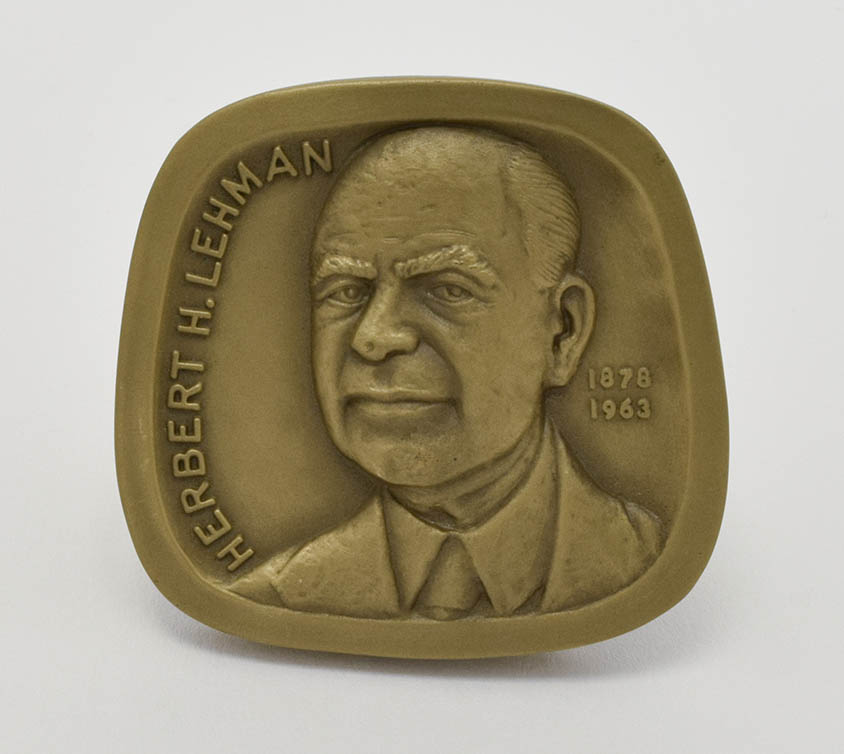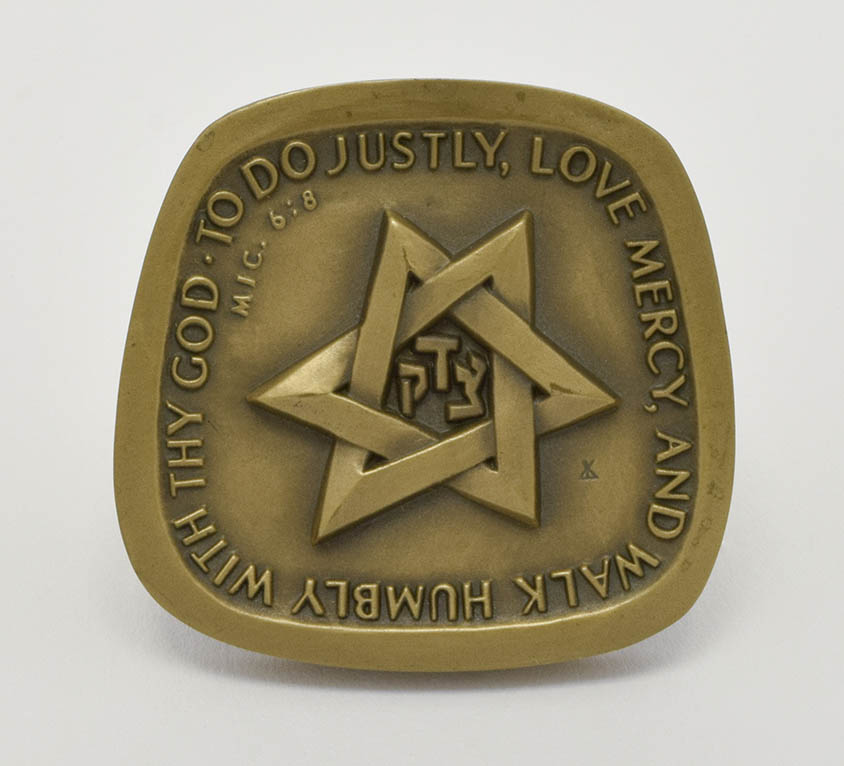Herbert Lehman (1878–1963)
Jacques Schnier (Romania 1898-1988 California)
USA, 1974
Bronze, h. 1 ¾ x w. 1 ¾ in.
Cincinnati Skirball Museum, Jewish-American Hall of Fame Collection, gift of Mel and Esther Wacks, Debra Wacks, and Shari Wacks, 2019.7.11
Herbert Henry Lehman was born in New York City to a German Jewish immigrant family. After graduating from Williams College in 1899, he began his career at the J. Spencer Turner Company, a textile manufacturing business where he rose to senior leadership positions. In 1908, he joined his family’s investment banking firm, Lehman Brothers, which was started by his father and uncles. Lehman served in the U.S. Army during World War I and was a recipient of the Distinguished Service Medal. Eventually leaving the business world and entering politics, Lehman became the Chairman of the Finance Committee of the Democratic Party. He was then elected Lieutenant Governor of New York in 1928 alongside Governor Franklin Delano Roosevelt. Lehman became Governor in 1933, and he championed social welfare initiatives including minimum wage legislation, unemployment protections, and expanded public housing until he left the governorship in 1942. Then, as Director-General of the United Nations Relief and Rehabilitation Administration (UNRRA) during and just after World War II, he coordinated aid to war-torn European countries. Lehman’s political career continued as a Senator for New York from 1949 to 1957. During this period, he fought McCarthyism and restrictive immigration quotas. Lehman was one of the founders of the American Jewish Joint Distribution Committee, he established a Children’s Zoo in Central Park, and he was a philanthropist who supported a wide variety of causes. Lehman was awarded the Presidential Medal of Freedom in 1963 in a ceremony coincidentally held the day after his death.


